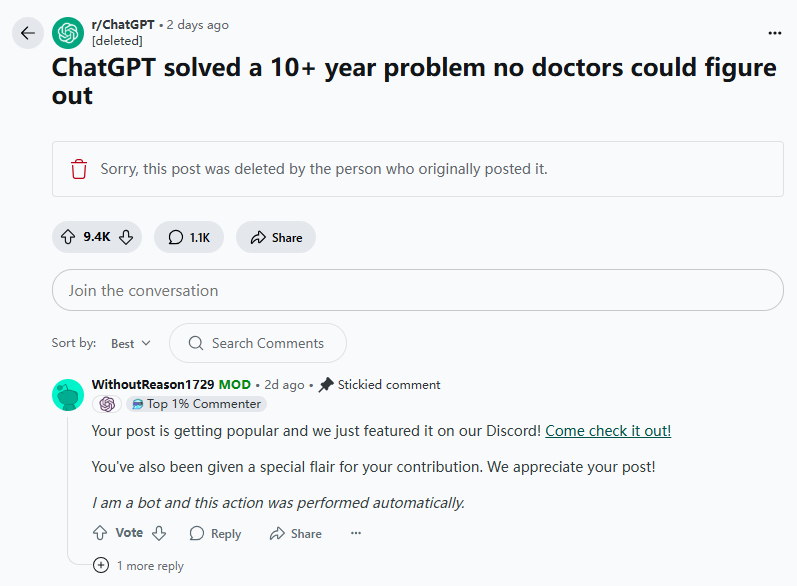ChatGPT Solves Decade-Old MTHFR Gene Mystery
AI Breakthrough in Genetic Diagnosis
In a striking demonstration of artificial intelligence's medical potential, a Reddit user recently credited ChatGPT with solving a health mystery that eluded doctors for over a decade. The individual suffered unexplained symptoms despite numerous MRIs, CT scans, and neurological exams—until the AI identified an MTHFR gene mutation affecting 7-12% of the population.

How ChatGPT Connected the Dots
The user input their complete medical history, lab results (including normal vitamin B12 levels), and symptom descriptions into ChatGPT. The AI recognized that an MTHFR mutation could impair nutrient absorption regardless of blood vitamin levels. Following ChatGPT's suggestion to try targeted supplements, the user reported near-total symptom resolution within months.
This success story ignited similar reports:
- One individual discovered their 15-year vomiting episodes stemmed from undiagnosed labyrinthitis after ChatGPT recommended an ENT specialist
- Multiple users described how AI synthesized scattered symptoms that time-pressed doctors viewed in isolation
Systemic Challenges in Healthcare
Commenters highlighted structural issues contributing to diagnostic gaps:
- Time constraints: Average US doctor visits last just 17 minutes (CDC data)
- Overspecialization: Specialists may miss cross-disciplinary connections
- Rare disease blind spots: Physicians prioritize common diagnoses first
"Each specialist saw me as an island," one user wrote. "ChatGPT became the bridge between them all."
The Promise and Limits of Medical AI
While praising AI's analytical capabilities, respondents emphasized critical boundaries:
- Verification required: All AI suggestions must be confirmed by licensed professionals
- Data privacy risks: Uploading unredacted medical records violates HIPAA regulations
- Error potential: Large language models occasionally hallucinate incorrect information
"AI won't replace doctors," noted a medical student commenter. "But it's becoming an essential second-opinion tool for complex cases."
The FDA has cleared over 500 AI-powered medical devices since 2022, though none yet match ChatGPT's general diagnostic capabilities. Experts predict specialized medical LLMs will emerge within 2-3 years.
Key Points:
- 🧠 Pattern recognition: ChatGPT connected decade-old symptoms to an MTHFR mutation through holistic analysis
- ⏱️ Systemic limitations: Healthcare workflows often prevent comprehensive symptom evaluation
- 🔒 Privacy first: Never input unredacted health data into consumer AI platforms
- 🩺 Collaborative future: AI serves best as diagnostic support, not replacement for physicians